1986 Toyota 4Runner Tires & Services
Get Started
Complete Auto Care for Your 1986 Toyota 4Runner
-
TIRES FOR YOUR 1986 Toyota 4Runner View Tire Info GET TIRE PRICING
-
REPAIR FOR YOUR 1986 Toyota 4Runner View Repair Info SCHEDULE REPAIR
-
MAINTENANCE FOR YOUR 1986 Toyota 4Runner View Maintenance Info SCHEDULE MAINTENANCE
-
OFFERS FOR YOUR 1986 Toyota 4Runner Limited Time Tire Offers VIEW ALL COUPONS
1986 Toyota 4Runner Tires
Recommended Tires | Tire Information
1986 Toyota 4Runner Tires Sizes, Speed Ratings, and Inflation
Not sure about your 1986 Toyota 4Runner tire size? Use the following chart to find information on tire size, speed rating, and inflation.
| Trim Level | Speed Rating | Inflation in PSI F/R | Tire Size |
|---|---|---|---|
| 1986 Toyota 4Runner DLX | None | 26 PSI/30 PSI | P225/75R15 |
| 1986 Toyota 4Runner SR5* | None | 29 PSI/32 PSI | P225/75R15 |
| 1986 Toyota 4Runner SR5* | None | 26 PSI/30 PSI | P225/75R15 |
| 1986 Toyota 4Runner SR5* | None | 29 PSI/32 PSI | P265/70R16 |
|
1986 Toyota 4Runner DLX Speed Rating: None Inflation F/R: 26 PSI/30 PSI |
|
1986 Toyota 4Runner SR5* Speed Rating: None Inflation F/R: 29 PSI/32 PSI |
|
1986 Toyota 4Runner SR5* Speed Rating: None Inflation F/R: 26 PSI/30 PSI |
|
1986 Toyota 4Runner SR5* Speed Rating: None Inflation F/R: 29 PSI/32 PSI |
* Note: these models have different tire sizes depending on vehicle options.
Recommended Tires for Your 1986 Toyota 4Runner
What tires are best for a 1986 Toyota 4Runner? Check out the following tire brands and types.
 ALENZA AS ULTRA
ALENZA AS ULTRA
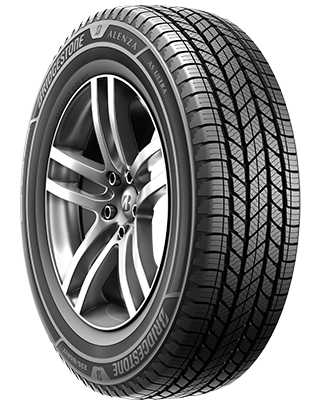
- No warranty
- All-Season
- Light Truck Tires
 Blizzak DM-V2
Blizzak DM-V2
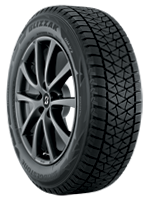
- No warranty
- Winter
- Winter
 Dueler A/T Revo 3
Dueler A/T Revo 3
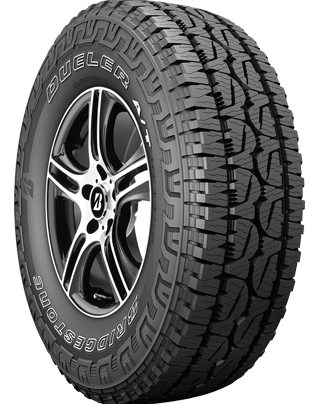
- Platinum Pact Limited Warranty
- All-Season
- Light Truck Tires
 Destination LE3
Destination LE3
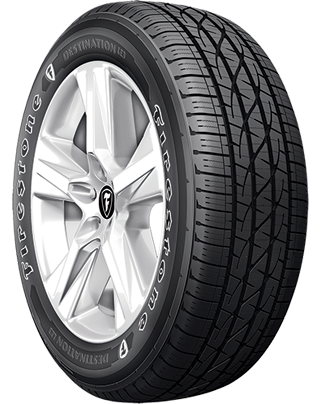
- No warranty
- All-Season
- Light Truck Tires
 Destination A/T2
Destination A/T2
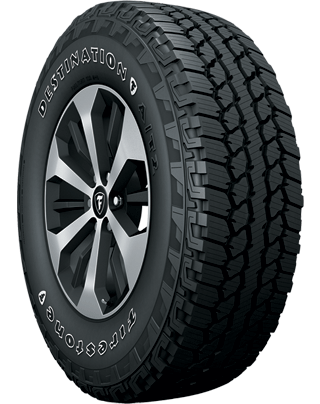
- Gold Pledge Limited Warranty
- All-Season
- Light Truck Tires
 Winterforce 2 UV
Winterforce 2 UV
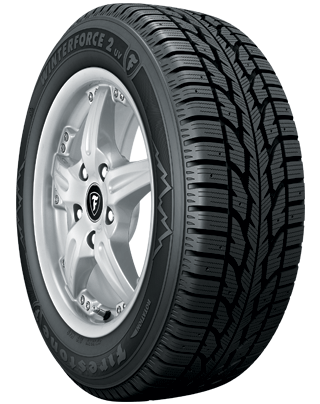
- No warranty
- Winter
- Winter

- No warranty
- All-Season
- Passenger Tires
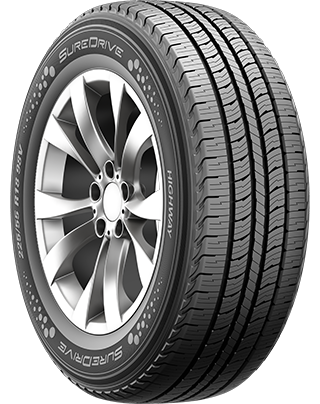
- No warranty
- All-Season
- Light Truck Tires
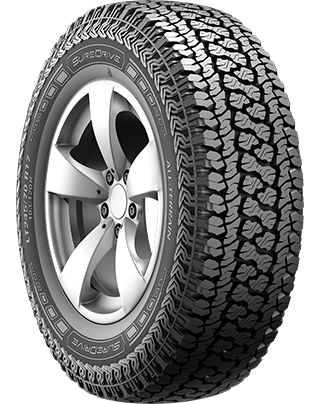
- No warranty
- All-Season
- Light Truck Tires
 Extensa A/S II
Extensa A/S II

- No warranty
- All-Season
- Passenger Tires
 OPEN COUNTRY A/T III
OPEN COUNTRY A/T III
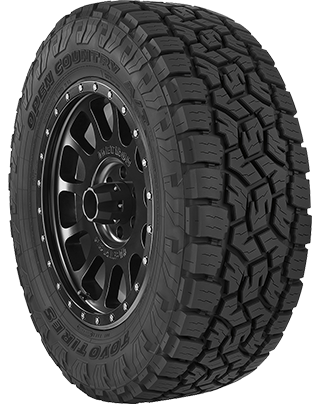
- No warranty
- All-Season
- Light Truck Tires
Choosing 1986 Toyota 4Runner Tires
Other than getting the proper tire size, you also want to consider a handful of other factors when buying new Toyota 4Runner tires like which tire brands you like most and where you drive. When evaluating your driving conditions, think about where you live (countryside vs. city vs. mountains) and the kind of unexpected weather you're likely to experience. Many drivers who live in states that experience all four seasons choose to purchase two sets of tires: one for winter and one for summer. Other drivers buy one set of all-season tires instead. That way they don't have to return to the tire shop and their vehicle is always ready for sun, rain, and light snow!
Next, consider your driving style. If you're an avid off-roader who yearns to pioneer new paths, you have very different tire needs than a highway commuter who doesn't hit the hills very often. Visit your local Firestone Complete Auto Care for help selecting the tire that's right for you, or get started by browsing tires that fit your Toyota 4Runner.
Toyota 4Runner Installation and More
Firestone Complete Auto Care installs more tires on more cars than most other companies. We're a tire store that also offers professional tire installation, maintenance, and rotation, along with complete auto care. We make it easy to buy new 1986 Toyota 4Runner tires online and book an installation appointment at the same time.
1986 Toyota 4Runner Tire Q&A
-
Why does Toyota tire inflation matter? A small decrease in tire pressure can have a big impact on your driving. Maintaining proper tire pressure can help improve braking time, increase fuel economy, and boost tire lifespan.
-
Why are there numbers on the side of my Toyota 4Runner tires? The numbers on your tire sidewall give you information about tire speed rating, traction, treadwear, tire size, and load carrying capacity. Chat with a tire technician to learn how to read the numbers on your Toyota tires!
-
Is there an easy way to check Toyota tire tread depth? Stay on top of your tire tread depth to help avoid a dangerous drive. You can check tread depth with a penny. Hold the penny so that Abraham Lincoln is facing you, then place your penny into a tread groove upside down. If you can see the top of Abe’s head, your tread is shallow and it might be time for new Toyota 4Runner tires. Grab a penny. Hold the so that Abe Lincon's head is facing you and his hair is pointing toward the ground. Then, place the penny into a tread groove. If you can see the top of Abe’s head, your tread is shallow and it might be time for new Toyota 4Runner tires.
1986 Toyota 4Runner Repair
Want more details? Choose a service below to read more about Toyota 4Runner repairs at Firestone Complete Auto Care.
1986 Toyota 4Runner Repair Information
Car repairs: for many drivers, that phrase is a dreadful one. We’re here to change that, though. At Firestone Complete Auto Care, we want to make car repair painless and hassle-free. When it’s time for 1986 Toyota 4Runner repair services, head to your nearest Firestone location and our technicians will take care of your 4Runner like it was their own. We’ll start by assessing what repairs may be needed, and we’ll provide you with a detailed explanation of what we recommend. We’ll never recommend a repair we don’t think is necessary for your safety or the performance of your Toyota.
How Much Are Toyota 4Runner Repairs?
Several factors can affect the cost to repair your 1986 Toyota 4Runner, including which repairs are needed, prices of appropriate replacement parts, how much labor the repair will take, and the state you live in. We update them regularly to keep our deals fresh!
A few different aspects can influence repair costs for your 1986 Toyota 4Runner, like
Questions About 1986 Toyota 4Runner Auto Repairs
-
Can scheduled maintenance help me avoid repairs? The cheapest 1986 Toyota 4Runner repair is the one that isn’t necessary in the first place! Staying up-to-date with your car’s scheduled maintenance services is a great way to keep future repair costs low.
-
Should I bring my Toyota in even if I can't pinpoint the problem? You know your vehicle. You also know when something feels 'off' with your vehicle. Pay attention when things don't run like they used to and stop by for a Courtesy Check when you notice an unusual sign, smell, or sensation. We might be able to help you prevent Toyota 4Runner repairs!
-
Do I have to get the repairs you recommend for my Toyota? We won’t recommend a service or repair for your 1986 Toyota 4Runner unless we think it’s necessary to keep you safe. Want to know more about a specific recommended repair? Ask! We’re here to help.
1986 Toyota 4Runner Brake Repair
Your Toyota 4Runner may be powered by a strong engine. But if you can't stop it, then it's scrap metal. If you’re experiencing squeaky brakes or a loss of braking power, don’t wait! Unresponsive brakes make it tough to give the road your best. What's more, waiting for things to figure themselves out can result in more damage to your brakes and your wallet. Go to your local Firestone Complete Auto Care for 1986 Toyota 4Runner brake repairs. We offer a variety of brake services like brake pad/shoe removal and replacement, rotor/drum resurfacing, brake fluid exchange, and brake caliper and wheel cylinder installation.
Questions About Your Toyota 4Runner Brakes
-
What is causing my 4Runner to shake when I brake? Feeling shaking or vibrating in your 4Runner as you brake might indicate a few different problems, including worn brake pads or rotors, loose suspension components, damaged brake calipers, or warped rotors. Book an appointment for a free brake inspection as soon as you notice a problem with your brakes.
-
What is the average lifespan of 4Runner brake pads? Brake pads typically last about 30,000 to 40,000 miles. However, driving conditions can affect this range. Sticking to highway driving and braking smoothly can help extend the life of your brake pads, while towing heavy loads or frequently riding your brakes can shorten it.
-
Should my 4Runner be leaking brake fluid when the car is off? Your 4Runner has a closed hydraulic brake system, meaning you should not have a brake fluid leak under normal conditions. However, parts of your brake system can wear out over time or become damaged, which can lead to a brake fluid leak.
Repairing Your Toyota 4Runner Drivetrain
Drivetrains for front, rear, and all-wheel-drive and 4WD vehicles are not all the same. You don't want to go to any random shop for drivetrain repair. You want to go to Firestone Complete Auto Care. We can fix many 1986 Toyota 4Runner drivetrain components Your Toyota 4Runner may need driveshaft attention if you feel heavy vibrations in your floorboards, clunks when shifting, resistance when turning, or vibration as your vehicle accelerates.
1986 Toyota 4Runner Drivetrain Q&A
-
What are the symptoms of a damaged Toyota drivetrain system? Your Toyota 4Runner drivetrain might be damaged if you notice strange noises from the rear of your vehicle, see fluid leaking, or have issues turning.
-
What causes a 4Runner’s malfunction indicator light (MIL) to illuminate? If your 4Runner has its malfunction warning light (more commonly called the check engine light) illuminated, it could indicate engine troubles, problems with the transmission, electrical issues, malfunctioning sensors, connector problems, or misfire issues.
-
How serious is a drivetrain malfunction in my 4Runner? A drivetrain malfunction in your 4Runner should never be taken lightly. Driving with a malfunctioning drivetrain can put you in danger and lead to further vehicle damage, so it's essential to have a qualified mechanic assess and repair the problem as soon as possible.
1986 Toyota 4Runner Alignment Services
Alignment services involve precise adjustments to your Toyota 4Runner’s suspension system, which connects the wheels with the rest of the vehicle. In an alignment service, calculated changes are made to the angles of your tires. This is so that your tires hit the road at an optimal angle for your vehicle’s performance — just as Toyota intended. Before we adjust the alignment of your 1986 Toyota 4Runner, we’ll start by checking the current alignment angles. Then, we’ll adjust the angles as needed until they match recommended measurements from Toyota.
Toyota 4Runner Alignment Questions
-
Are there road conditions that can hurt my Toyota 4Runner alignment? Potholes and uneven roads can knock your car out of alignment, so stay aware of the road ahead and adjust your speed (or avoid these obstacles whenever it’s safely possible).
-
How frequently should you get a wheel alignment for your 4Runner? It’s usually suggested you check your alignment about every 6,000 miles or 6 months (whichever occurs first). Still, you should reference your 4Runner owner’s manual for Toyota's recommended interval.
-
Does getting new 4Runner tires mean you need an alignment? It’s not mandatory to get an alignment after installing new tires on your 4Runner, but it can be a smart decision! Proper alignment from the jump can help improve handling, fuel efficiency, and tire wear.
1986 Toyota 4Runner Engine Services
If your 1986 Toyota 4Runner needs engine repair, our technicians will provide you with a thorough explanation beforehand. We don't start working until we have your approval. If a repair isn’t urgent right now, we’ll let you know. We'll also tell you if it's necessary for your safety. We want to provide you with the information you need to make an informed engine repair decision. By choosing Firestone Complete Auto Care for 4Runner engine repairs and you can feel good knowing that we only use Toyota-compliant replacement parts such as the timing belt, engine oil seal, sensors, or another part.
Questions About 1986 Toyota 4Runner Engines
-
Why does the check engine light in my 4Runner turn on when I start my car? It’s usually normal for your check engine light to turn on upon ignition. This is just your 4Runner testing its circuits. The dash light shouldn't stay on. If it does, you might want to bring your vehicle in for service.
-
Are Toyota 4Runner engine noises bad? Unusual noises can signal a problem with your Toyota 4Runner engine. Tapping or knocking could mean you're low on oil. Whistling could mean a belt is misaligned or there's an intake leak. Squealing can indicate a loose fan belt, and grinding might be coming from the brakes, not the engine.
-
What could damage my Toyota 4Runner engine? Some driving habits are not so great for your engine. These include driving on a near-empty gas tank, flooring the gas pedal while the car is in Park, or accelerating too quickly, too soon. Protect your engine’s performance and efficiency by distancing yourself from these habits.
Get Your Toyota 4Runner Tire Repaired
If the road has been rough on your 1986 Toyota 4Runner tires, Firestone Complete Auto Care can help. In some cases, a tire doesn’t have to be replaced – it can be plugged and patched with a simple repair. Depending on the damage, though, a repair might not be the right move. Our technicians can determine which option is best for your situation. We'll start by evaluating the state of wear, the location of damage, type of damage, and the size of the damage.
If your 1986 Toyota 4Runner tire puncture can be repaired, we'll follow three basic steps to repair it: (1) Remove the tire from the wheel for inspection and repair, (2) fill the puncture to keep the moisture out, and (3) re-seal the inside lining of your tire so that air won’t escape.
Toyota 4Runner Tire Repair Questions
-
How soon should I have my flat tire repaired? Driving on a flat tire is not a good idea. Your 4Runner engine will keep running with a flat tire, but you could damage your wheel by continuing to drive on a flat.
-
Can I use an emergency/temporary sealant to fix my Toyota's flat tire? Fast fixes are a mixed blessing. They’ll help you get your Toyota 4Runner to Firestone Complete Auto Care, but don’t count on them to keep you on the road for very long. Using a temporary sealant may also void a Bridgestone or Firestone tire warranty.
-
Why do my 4Runner tires keep losing air? Your 4Runner tires might keep losing air due to a leaking valve stem, puncture or hole in the tire tread or sidewall, or damaged wheel.
1986 Toyota 4Runner Maintenance
Take care of your Toyota 4Runner and it'll take care of you. With the right maintenance at the right time, your 4Runner has a good chance of hitting 200,000 miles or more.
1986 Toyota 4Runner Maintenance Information
There's no need to guess when it's time to get 4Runner maintenance, and no need to wait until something goes wrong. Rely on the recommended maintenance schedule that’s been created just for your 1986 Toyota 4Runner! Toyota knows your vehicle inside and out (they made it, after all!), so they’ve designed this schedule with your car’s unique needs in mind. Driving conditions, climate variations, and other variables can affect which scheduled maintenance services you’ll need; however, there’s a good chance that your vehicle’s recommended maintenance services will include fluid exchanges, filter changes, new brake pads, oil changes, and tire rotations. Staying on track with routine service appointments can help your 4Runner perform better, keep you safer on the road, and help you avoid expensive repairs caused by 1986 Toyota 4Runner problems later.
Essential Maintenance to Keep Your 1986 Toyota 4Runner Running Newer, Longer
Bring your 1986 Toyota 4Runner to Firestone Complete Auto Care for factory-recommended maintenance services and a skilled technician will start the appointment with a Courtesy Check. The Courtesy Check helps us see what we’re working with under the hood, and allows us to alert you to any potential problems before they worsen. During a Courtesy Check, we’ll always check your battery, then we’ll move on to inspect your 4Runner’s head and tail lights, tires, fluid levels, alignment, and windshield wipers.
Firestone Complete Auto Care is the place to go for 1986 Toyota 4Runner maintenance. Don’t wait until something goes wrong with your car. Visit your nearest location for proactive maintenance today.
Questions About 1986 Toyota 4Runner Maintenance
-
What should I do after hitting a pothole in my Toyota 4Runner? Watch out for pothole damage. If your 1986 4Runner is pulling to one side or the other, your tires or suspension system could be calling out for help.
-
When should I switch my Toyota 4Runner to high mileage oil? If your Toyota 4Runner has ticked past 75,000 miles, consider switching to high mileage oil at your next oil change to give your engine what it needs to go another 75,000 (or more!). High mileage oil: make it a high priority!
-
Can I ignore dashboard lights on my Toyota? It's better to get them addressed as soon as possible. An illuminated dashboard light means something in your vehicle isn't functioning like it should. Letting problems linger can mean bad news for your Toyota 4Runner, so be sure to take your car in for service as soon as you notice an illuminated dashboard light.
1986 Toyota 4Runner Battery Replacement & Size
Researching battery replacements for your Toyota 4Runner?
| Battery | Engine | Warranty | Cold Cranking Amps | |
|---|---|---|---|---|
| 26-3 | L4/2.4L | Replacement 24 months | Performance months | 525 |
1986 Toyota 4Runner Car Batteries
On average, auto batteries last anywhere from three to five years. You want to replace your 1986 Toyota 4Runner battery before it fails and leaves you stranded. Pay attention to clues that your battery is on its way out. A sluggish engine start, a blinking battery or check engine light, bloated battery case, corroded battery posts, or dim headlights can all be signs that your battery is on its last leg.
Or, you can get a complimentary battery check at your nearest Firestone Complete Auto Care. Stop by for a free battery test and, if needed, get your Toyota 4Runner a replacement battery. Car batteries are one of our many specialties! Our technicians are familiar with Toyota-specific recommendations for 4Runner battery cold cranking amps and reserve capacity. Get help choosing the battery size that fits your car perfectly, and schedule a weekday or weekend battery replacement service for your car.
Top Toyota 4RunnerCar Battery Questions
-
Why won’t my Toyota 4Runner battery hold a charge? A battery is in its final hour when it will no longer hold a charge. The battery may be too old. Or, you may have been leaving your car doors ajar and the cabin light at night. Stop by for a complimentary battery check at your favorite Firestone Complete Auto Care and get a handle on your car battery’s health.
-
What is the average lifespan of a car battery? The typical 12-volt car battery may last three to five years, depending on the type of battery, the driving conditions, and how well the battery is maintained.
-
What is the white, crusty substance accumulating on my 4Runner’s battery post? A chemical reaction between battery acid and the air can cause a white, crusty buildup to form on the terminals of your 4Runner car battery. This buildup — known as corrosion — can impede the flow of electricity and cause a range of issues, from poor performance to premature battery failure.
1986 Toyota 4Runner Oil Change Service
Your 1986 4Runner’s oil should be changed according to Toyota’s recommended oil change intervals. Your 4Runner may need an oil change right away if your check engine/oil change light is on, you hear knock knock knock coming from the engine, smell oil inside the car, or notice excess vehicle exhaust. You might need an oil change more frequently than what’s recommended by Toyota if you regularly haul heavy loads, frequent dusty roads, go off-roading a lot, or drive at low speeds for long distances.
Your local Firestone Complete Auto Care has the right 1986 Toyota 4Runner motor oil: either synthetic or conventional. Check your owner's manual and talk with a technician to select the right Toyota 4Runner oil, whether it's Quaker State® Advanced Durability™ conventional oil, Pennzoil® High Mileage Vehicle® motor oil, Pennzoil Platinum® Full Synthetic motor oil with PurePlus™ Technology, or Shell Rotella® heavy-duty engine oil. During an oil change, a technician will change your 4Runner's oil, replace and recycle the old oil and filter, inspect all of your other filters, refill vital car fluids, and perform a courtesy inspection on your entire vehicle. Make an appointment for an oil change service today and let the oil experts take care of your 4Runner's engine.
1986 Toyota 4Runner Oil Change Q&A
-
What can cause the oil light on my Toyota 4Runner to illuminate? If you’re overdue for an oil change, it might trigger your Toyota 4Runner oil change reminder light. If the oil pressure light is illuminated, it could be due to low engine oil, a failing oil pump, a malfunctioning oil pressure sensor, or a clogged oil filter.
-
Can I change my Toyota oil on my own? Changing your own oil isn't as convenient as you might think. It requires special tools and old oil must be disposed of properly. Having your oil professionally changed reduces the chances of something going wrong with the oil change, but also with your vehicle down the road.
-
Why is my Toyota exhaust smoke gray or blue? You could have an oil leak and have a case of burning oil. Looks like it’s time for a professional to take a look. The leak could be the result of worn valve seals, fried piston rings, or old cylinder walls.
1986 Toyota 4Runner Tune-Up & Engine Service
Periodic tune-ups can bring more power back to your 4Runner’s engine. Your local Firestone Complete Auto Care offers a range of engine tune-up services for your 1986 Toyota 4Runner. One option is the standard Firestone Tune-Up. It includes a complete visual inspection of engine components, installation of new spark plugs, and a lifetime warranty on parts*. A second service option replaces the air and fuel filter in your 4Runner. Yet another service is a fuel system cleaning process, which involves removing varnish, dirt, and carbon deposits that have built up inside the fuel injectors, throttle body, and throttle plate in your 4Runner. This can improve your fuel system’s performance (and therefore, your engine’s performance). Consider this when choosing a tune-up service for your 4Runner: your vehicle’s maintenance record and mileage can determine which service is best. Talk to a technician about your driving style, mileage, and service history to learn more about your vehicle's specific needs.
*Check with a teammate at Firestone Complete Auto Care for complete terms and conditions regarding warranties.
Questions About 1986 Toyota 4Runner Engine Tune-Ups
-
Will it hurt my Toyota 4Runner to drive with old spark plugs? When it’s time to replace the spark plugs, don’t delay. These small (but vital!) parts provide the electric spark that your car needs in order to start, and old spark plugs can prevent your car from starting at all. Replace spark plugs on time or about every 30,000 miles or so.
-
What does a puddle underneath my Toyota 4Runner mean? Don't ignore puddles of fluid under your Toyota 4Runner. It could signal a coolant leak, brake fluid leak, or an oil leak. Let any one of these leaks linger and it could cause engine damage.
-
How often do Toyota 4Runner fuel injectors need to be cleaned? The cleaning schedule for vehicle fuel injectors varies depending on your driving conditions and the type of fuel you use. Some manufacturers suggest cleaning your fuel system as part of routine maintenance, while others will recommend it on an as-needed basis if you’re experiencing poor performance. Reference your Toyota owner’s manual for exact guidelines.
Suspension Service & Repair for 1986 Toyota 4Runner
When you first bought your 1986 Toyota 4Runner, you probably enjoyed a smooth and steady ride. Lately, though, your ride’s been feeling a little bumpy. Maybe your 4Runner bounces, leans to one side, or makes noise whenever you turn or drive over a speed bump. As soon as you notice that something’s “off” with your 1986 Toyota 4Runner, bring it in for steering and suspension services. We’ll get to the root of the issue and, if your car needs steering and suspension repairs, we’ll explain what your car needs and how much it’ll cost to get it done. We won't begin any work without your permission.
Questions About 1986 Toyota 4Runner Steering & Suspension
-
Why is my Toyota 4Runner bouncing so much? Excessive bouncing in your Toyota 4Runner might be due to damaged struts or shocks that are unable to absorb road bumps effectively, causing your vehicle to feel more like a pogo stick than a smooth ride.
-
Why does my 4Runner tilt forward when I hit the brakes? The forward dip in the front end of your 4Runner when you brake is caused by the weight and momentum transferring to the front wheels. If your suspension system is in bad shape, it can fail to distribute this force, leading your front end to dip further downward.
-
Does tire pressure and tread depth impact my Toyota's suspension? Keeping your tires properly inflated can help reduce strain on the suspension, and also help you notice when you need new tires. A tire that doesn't have an adequate amount of tread can't grip the road or function as well as the manufacturer intended.
Convenient & Local 1986 Toyota 4Runner A/C Service
Our trained technicians will do what they can to solve your 1986 Toyota 4Runner A/C problems. During this initial A/C performance check, we’ll look at the state of your 1986 Toyota 4Runner’s A/C system to see if repair work is required. This check includes a visual inspection, performance test, and pressure and leak test.
While your 1986 Toyota 4Runner’s air conditioner is being serviced, we’ll also do an A/C evacuation and recharge. During this process, a technician will remove the old refrigerant from the A/C system. Then, they’ll perform an evacuation (also known as a discharge) on the entire system per Toyota guidelines. Finally, we’ll recharge the A/C system with new refrigerant.
Questions About 1986 Toyota 4Runner A/C Systems
-
What’s making my 4Runner A/C put out warm air? An A/C blowing hot air has several possible root causes. There could be an issue with your compressor clutch, a blown fuse, a leak, or a clog in the expansion valve.
-
How does my A/C system get a leak? A/C system leaks are often due to a combination of age and moisture. Rubber seals and gaskets naturally degrade over time, allowing refrigerant to exit and moisture to enter your 4Runner's A/C system.
-
Why does my vehicle have to be moving for my 4Runner’s A/C to work? Damaged or worn components in your 4Runner’s electrical or air conditioning system can cause the A/C to only work when the car is moving. You may be dealing with low coolant or a faulty cooling fan.
1986 Toyota 4Runner Transmission Service & Repairs
Your transmission carries power from the engine to the wheels so that you can drive at the speed you desire. Since the transmission has to translate the precise amount of power for your desired amount of speed, a tiny transmission issue can take a major toll on your car’s performance. 1986 Toyota 4Runner transmission problems can show up as shifting delays, jumping or grinding during acceleration, the car shaking at any speed, or whistling noises and a burning smell coming from under the hood. Let Toyota 4Runner transmission problems linger and your could suffer a loss in fuel efficiency or find that you can't drive your 4Runner at all. Our expert techs are familiar with 1986 4Runner services and perform them according to Toyota-recommended specifications. As soon as you suspect something’s wrong with your 4Runner’s transmission, book an appointment at your local Firestone Complete Auto Care to help keep your engine running at peak performance.
Questions About 1986 Toyota 4Runner’s Transmission
-
Does my 4Runner's transmission fluid need to be inspected? Regularly checking and exchanging your 1986 4Runner’s transmission fluid is one of the best ways to help the transmission system perform. Some technicians would say that between 30,000 and 60,000 miles is a good timeframe for having your Toyota's transmission fluid checked and replaced, but that timeline can vary depending on how your vehicle is used and your manufacturer’s recommendations. The good news is that transmission fluid leaks are affordable to repair and easy to spot.
-
Is it possible for transmission fluid to leak from my Toyota 4Runner? Yes. Toyota 4Runner transmission fluid can leak over time and potentially cause transmission issues. Worn or damaged seals, a loose or damaged transmission pan, a cracked transmission housing, faulty transmission cooler lines, or an overfilled transmission could cause transmission fluid leaks.
-
Can I still drive my Toyota 4Runner if it has a transmission fluid leak? Driving your 4Runner with a transmission fluid leak is highly discouraged. Transmission fluid is vital to the smooth operation of your transmission system, and a leak can put the entire system at risk. A transmission fluid leak may lead to decreased performance, overheating, and possibly even transmission failure.
Get a 1986 Toyota 4Runner Vehicle Inspection
At Firestone Complete Auto Care, we perform a multi-point Courtesy Check during any vehicle service. First, a technician will pop the hood on your Toyota 4Runner and test the battery to see how much charge it has left – and determine if it may fail in the near future. The check will continue with a visual inspection of your Toyota 4Runner's filters, lights, wiper blades, fluid levels, belts, hoses, tires, and alignment.
Every service performed at your nearest Firestone Complete Auto Care will include a Courtesy Check, but we also offer an in-depth Complete Vehicle Inspection for your 1986 Toyota 4Runner. During a Complete Vehicle Inspection, we’ll visually check everything that’s on the list for a Courtesy Check. Additionally, we’ll perform a thorough manual inspection of your steering, suspension, brakes, and exhaust system. This inspection is aimed at informing you of any major problems that could wreak havoc on your 1986 Toyota 4Runner if left unaddressed.
Depending on your location, you may be able to take care of your state inspection or safety test at your local Firestone Complete Auto Care. Specific requirements for these types of inspections vary by state.
1986 Toyota 4Runner Vehicle Inspection Q and A
-
How do I know if I should have an inspection on my Toyota 4Runner? You drive your car, day in and day out, so you know it best. If you notice unusual engine noises or you can’t shake the feeling that something is 'off,' start with a Courtesy Check to stay ahead of potential issues.
-
Can you fix my 1986 Toyota 4Runner so it will pass a state inspection test? Don’t panic! Come in for a complete inspection today and we’ll find (and repair) the root cause before you have your vehicle retested.
-
What's the ideal timing for a full vehicle inspection on my Toyota 4Runner? You should bring your Toyota 4Runner in for a full vehicle inspection if something weird happens and you can’t find the problem. A new dashboard light might come on, you may hear strange sounds under the hood, or your steering might feel off. A complete inspection is also a great idea before a road trip for added peace of mind.
1986 Toyota 4Runner Radiator Repair & Service
Regular, proactive service on the radiator in your 1986 Toyota 4Runner is crucial to keep your engine in the best possible shape for years to come. Toyota recommends that you replace coolant (also called antifreeze) at certain intervals, but it’s a good idea to keep your eyes open for any indication that your radiator is failing. You could be on the verge of a radiator-induced engine breakdown if you notice leaking coolant, overheating, or an illuminated low coolant dashboard light.
If you bring your vehicle to Firestone Complete Auto Care, we start with a comprehensive inspection of your Toyota 4Runner’s cooling system. Then, we’ll move on to a machine-powered coolant exchange. Finally, we’ll refill the flushed sealants, lubricants and chemicals, then do a pressure check to catch any possible leaks. If you’re about to lose your cool over a too-hot engine, rest assured that your 1986 Toyota 4Runner is in good hands at Firestone Complete Auto Care.
1986 Toyota 4Runner Radiator Q&A
-
What does an illuminated coolant temperature light mean for my Toyota? Your engine might be about to overheat. If your low coolant light is on, pull over in a safe area and wait for your engine temperature to go down. Once it’s safe to do so, bring your car to your nearest Firestone Complete Auto Care to have the coolant system inspected.
-
My 4Runner overheated! What can cause that? One of the main reasons your Toyota 4Runner engine might overheat is because you don’t have enough coolant. Other causes include a clogged radiator, a damaged cooling fan, a malfunctioning thermostat, or a faulty water pump.
-
What is making my 4Runner radiator sound like it’s boiling or rumbling? There could be air pockets in your 4Runner’s cooling system. You might also have a clogged radiator or faulty radiator cap (this last one is an easy fix!).